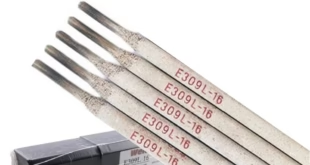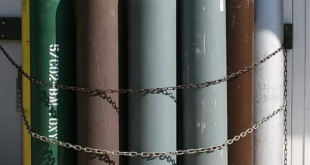How To Start a Welding Business
Introduction
The welding industry plays a crucial role in various sectors, making it an essential component of modern infrastructure. From construction and manufacturing to automotive and aerospace industries, welding is fundamental for joining metal components and ensuring structural integrity. As a result, the demand for skilled welders continues to grow steadily, creating a promising opportunity for aspiring entrepreneurs to start their own welding business.
Importance of welding in various industries
Welding is a vital process that enables the fabrication, repair, and maintenance of metal structures and components. It provides the foundation for constructing buildings, bridges, and pipelines, as well as manufacturing machinery, vehicles, and appliances. Without welding, the efficient functioning and durability of these essential elements would be compromised. By starting a welding business, you can contribute to the development and growth of numerous industries by providing high-quality welding services.
The growing demand for skilled welders
In recent years, the demand for skilled welders has been steadily increasing. As older welders retire and industries expand, there is a shortage of qualified professionals to meet the growing needs of the market. This shortage presents a unique opportunity for entrepreneurs who possess welding skills and are willing to start their own business. By capitalizing on this demand, you can establish a thriving welding enterprise and tap into a lucrative market.
The potential for starting a welding business
Starting a welding business offers numerous advantages for entrepreneurs. Firstly, it allows you to be your own boss, giving you the freedom to make decisions and shape the direction of your business. Additionally, a welding business can provide a stable income, especially considering the consistent demand for welding services across various industries. Moreover, as you gain experience and establish a reputable brand, there is ample potential for growth and expansion, which can lead to increased profitability and success.
In the following sections, we will delve into the essential steps and considerations to help you embark on your journey of starting a welding business. From assessing your skills and market research to setting up your workshop and marketing your services, this guide will provide valuable insights and practical advice to set you on the path to success in the welding industry.

Assessing Your Skills and Experience
Evaluating your welding expertise
Before starting a welding business, it is crucial to assess your current welding skills and expertise. Take an honest inventory of your knowledge and capabilities in various welding techniques, such as MIG (Metal Inert Gas), TIG (Tungsten Inert Gas), and stick welding. Evaluate your proficiency in reading and interpreting blueprints, understanding welding symbols, and working with different metals and materials.
Identifying areas for improvement and additional training
Identifying areas where you can improve your welding skills is essential for delivering high-quality work and meeting industry standards. Consider enrolling in specialized welding courses, workshops, or certifications to enhance your proficiency in specific welding techniques or gain expertise in welding specific materials. This continuous learning will help you stay updated with the latest advancements in welding technology and techniques.
Gaining practical experience through apprenticeships or internships
Practical experience is invaluable when it comes to welding. Consider seeking apprenticeships or internships with experienced welders or established welding businesses. These opportunities will provide hands-on experience, allowing you to refine your skills, learn industry best practices, and gain insight into the day-to-day operations of a welding business. Additionally, working alongside seasoned professionals will expose you to different welding projects and techniques, enhancing your overall proficiency.
By thoroughly assessing your welding expertise, identifying areas for improvement, and gaining practical experience through apprenticeships or internships, you will lay a strong foundation for your welding business. Remember, welding is a skill that requires continuous learning and practice, so investing in your personal and professional development will ultimately contribute to the success of your business.
Researching the Market and Identifying a Niche
Analyzing the local market for welding services
Before starting a welding business, it is crucial to thoroughly analyze the local market in your area. Evaluate the demand for welding services by examining the industries that heavily rely on welding, such as construction, manufacturing, automotive, oil and gas, and marine sectors. Understand the current market trends, project pipelines, and upcoming developments that may create opportunities for your business.
Identifying target industries and potential customers
Once you have analyzed the local market, identify the target industries and potential customers that align with your skills and expertise. Determine the specific needs and requirements of these industries, and tailor your services to cater to their demands. For example, you may focus on providing welding services to construction companies for structural steel fabrication or target automotive manufacturers for specialized welding applications.
Additionally, consider establishing relationships with other professionals in related fields, such as contractors, engineers, architects, or equipment suppliers, who can provide referrals and connect you with potential customers.
Assessing the competition and differentiating your business
Conduct a thorough assessment of your competition in the local market. Identify other welding businesses and contractors operating in your area and analyze their strengths, weaknesses, services offered, pricing strategies, and customer reviews. This analysis will help you understand the competitive landscape and identify gaps or opportunities for differentiation.
To stand out from the competition, focus on developing a unique selling proposition (USP) for your welding business. This could be offering specialized welding techniques, using advanced equipment and technology, providing exceptional customer service, or delivering projects with quick turnaround times. Find a way to differentiate yourself and communicate your unique value proposition to potential customers.
By thoroughly researching the market, identifying target industries and potential customers, and assessing the competition, you can position your welding business strategically and differentiate yourself in a crowded market. This knowledge will enable you to tailor your services, marketing efforts, and value proposition to meet the specific needs of your target customers and gain a competitive advantage.
Developing a Business Plan
Defining your business structure
The first step in developing a business plan for your welding business is to define its legal structure. Decide whether you want to operate as a sole proprietorship, partnership, or form a limited liability company (LLC). Each structure has its advantages and considerations regarding liability, taxation, and decision-making authority. Consult with a legal professional or business advisor to determine the most suitable structure for your welding business based on your specific needs and circumstances.
Setting goals and objectives for your welding business
Establishing clear goals and objectives is crucial for guiding the growth and development of your welding business. Consider both short-term and long-term goals. Short-term goals may include acquiring the necessary equipment, obtaining required certifications, and securing initial clients. Long-term goals may involve expanding your client base, increasing revenue, and diversifying your services. Ensure that your goals are specific, measurable, attainable, relevant, and time-bound (SMART).
Creating a comprehensive business plan, including financial projections
A comprehensive business plan is essential for outlining the roadmap of your welding business. It should include:
- Executive Summary: Provide an overview of your business, its mission, vision, and key highlights.
- Company Description: Describe your welding business, its legal structure, location, services offered, and target market.
- Market Analysis: Present a detailed analysis of the welding industry, including market trends, customer needs, competition, and growth potential.
- Organization and Management: Outline the organizational structure of your business and the roles and responsibilities of key team members.
- Services and Pricing: Describe the welding services you will offer and establish a pricing strategy based on market research and cost analysis.
- Marketing and Sales Strategy: Explain how you will promote your welding business, identify target customers, and outline your marketing and advertising plans.
- Operational Plan: Detail the day-to-day operations of your welding business, including workflow, equipment, and facilities.
- Financial Projections: Develop a financial forecast, including projected income, expenses, and cash flow statements. Include a break-even analysis and determine the funding requirements for starting and operating your business.
- Risk Analysis and Contingency Plan: Identify potential risks and challenges that your business may face and outline strategies to mitigate them.
- Appendices: Include supporting documents such as licenses, certifications, resumes, and any additional information relevant to your business plan.
Remember to periodically review and update your business plan as your welding business evolves and grows.
Securing Funding and Legal Requirements
Estimating startup costs and determining your financial needs
To start a welding business, it’s important to estimate your startup costs accurately and determine your financial needs. Consider expenses such as equipment (welding machines, safety gear, tools), workshop setup, initial inventory of materials, marketing and advertising, insurance, licensing fees, professional services (legal and accounting), and working capital for the initial months of operation. Create a detailed budget that outlines these costs to gain a clear understanding of your financial requirements.
Exploring financing options (loans, grants, investors)
Once you have determined your financial needs, explore different financing options to secure funding for your welding business. Some potential avenues include:
- Traditional Bank Loans: Approach local banks or credit unions to inquire about small business loans. Prepare a solid business plan and financial projections to support your loan application.
- Small Business Administration (SBA) Loans: The SBA offers loan programs specifically designed for small businesses. Explore their offerings, such as 7(a) loans or microloans, which may have favorable terms and lower interest rates.
- Grants and Government Programs: Research grants and programs that support small businesses, especially those in the trades or construction industry. These grants can provide funding or resources to help you get started.
- Investors or Business Partners: Consider seeking investment from private investors or partnering with someone who can provide financial backing and expertise in the welding industry. Prepare a solid business plan and be ready to pitch your business idea effectively.
- Crowdfunding: Explore crowdfunding platforms to raise funds for your welding business. Present your business concept and goals to potential supporters who may be interested in backing your venture.
Remember to thoroughly research and assess the terms, interest rates, repayment options, and potential obligations associated with each financing option. Choose the one that best aligns with your business goals and financial capabilities.
Understanding and fulfilling legal requirements (licenses, permits, insurance)
Starting a welding business involves fulfilling various legal requirements. Research and understand the specific licenses and permits needed to operate legally in your jurisdiction. These may include general business licenses, trade licenses, construction permits, and environmental permits, depending on your location and the nature of your services. Contact your local government offices or regulatory agencies to obtain the necessary information and complete the required paperwork.
Additionally, it’s crucial to have appropriate insurance coverage to protect your business and manage potential risks. Consider general liability insurance, professional liability insurance, workers’ compensation insurance, and property insurance to safeguard your assets and mitigate liabilities.
Consult with a business attorney or legal professional who specializes in small businesses to ensure compliance with all legal and regulatory requirements.
By estimating your startup costs accurately, exploring financing options, and understanding and fulfilling legal requirements, you can secure the necessary funding and ensure compliance with the legal framework. This will provide a solid foundation for your welding business and contribute to its long-term success
Setting Up Your Workshop
Choosing an appropriate location for your welding workshop
Selecting the right location for your welding workshop is crucial for the success of your business. Consider factors such as accessibility, proximity to target industries and potential customers, zoning regulations, and the availability of necessary utilities (electricity, water, ventilation). Ensure that the space is large enough to accommodate your equipment, materials, and workflow efficiently. If renting or leasing a space, negotiate favorable lease terms that align with your business needs and budget.
Outlining the necessary equipment and tools
Identify and procure the necessary equipment and tools to set up your welding workshop. This may include welding machines (MIG, TIG, stick), welding electrodes, torches, regulators, protective gear (helmets, gloves, jackets), grinding and cutting tools, clamps, measuring instruments, and material handling equipment. Research reputable suppliers to ensure the quality and reliability of your equipment. Consider both initial purchase costs and ongoing maintenance requirements when budgeting for equipment.
Ensuring safety measures and compliance with regulations
Safety should be a top priority in your welding workshop. Implement safety measures and protocols to protect yourself, your employees (if applicable), and anyone visiting your workshop. This includes providing proper ventilation, installing fire prevention systems, implementing safety training and procedures, using personal protective equipment (PPE), and ensuring compliance with occupational health and safety regulations.
Consult local safety regulations and standards specific to welding operations to ensure full compliance. Regularly inspect and maintain your equipment to prevent accidents and ensure optimal performance.
Marketing and Promoting Your Welding Business
Developing a branding strategy and unique selling proposition
Develop a branding strategy that communicates the unique value of your welding business. Define your brand identity, including your business name, logo, tagline, and overall visual representation.
Creating a professional website and online presence
In today’s digital age, having a professional website is essential for marketing your welding business. Create a user-friendly website that showcases your services, expertise, and past projects. Include clear contact information, testimonials from satisfied customers, and a portfolio of your work.
Implementing effective marketing tactics (networking, referrals, advertising)
Implement a mix of marketing tactics to promote your welding business. Networking is crucial for building relationships with potential clients and industry professionals.
By setting up your workshop effectively and ensuring compliance with safety regulations, and by implementing a strategic marketing plan that includes branding, a professional website, and various marketing tactics, you can establish a strong presence in the welding
Building a Clientele and Maintaining Relationships
Networking with potential customers and industry professionals
Networking plays a crucial role in building a clientele for your welding business. Attend industry events, join trade organizations, and actively participate in community activities where you can connect with potential customers and industry professionals. Build relationships based on trust and mutual respect by engaging in meaningful conversations, exchanging business cards, and following up with contacts.
Providing exceptional customer service and quality workmanship
Delivering exceptional customer service and maintaining high-quality workmanship are essential for building a strong reputation and fostering customer loyalty. Communicate clearly with clients, listen to their needs, and provide prompt responses to inquiries and concerns. Strive for excellence in every project you undertake, ensuring that your work meets or exceeds the expectations of your clients. Going the extra mile and providing a positive experience will encourage repeat business and generate positive word-of-mouth referrals.
Establishing long-term relationships through follow-ups and customer retention strategies
Maintaining long-term relationships with your clients is vital for the growth of your welding business. Implement follow-up procedures to ensure customer satisfaction after project completion. Send thank-you notes or emails, conduct satisfaction surveys, and address any issues promptly.
Managing Operations and Finances
Implementing efficient workflow and project management systems
Efficient workflow and project management systems are essential for optimizing operations in your welding business. Streamline processes by establishing clear project timelines, assigning tasks to team members if applicable, and using project management software or tools to track progress. This will help ensure timely completion of projects and improve overall productivity. Regularly assess and refine your workflow to identify areas for improvement and implement best practices.
Setting competitive pricing and managing expenses
Setting competitive pricing is crucial for profitability and attracting clients. Research market rates and factor in your costs, including labor, materials, overhead, and desired profit margins. Consider the value you offer, your expertise, and the market demand when determining your pricing strategy.
Additionally, effective expense management is essential for maintaining financial stability. Regularly review and analyze your expenses, identifying areas where you can optimize costs without compromising the quality of your work. Look for opportunities to negotiate better deals with suppliers or explore bulk purchasing options to reduce material costs.
Tracking financial records and seeking professional guidance
Accurate financial record-keeping is essential for monitoring the financial health of your welding business. Track income, expenses, and cash flow regularly using accounting software or working with a professional accountant. Maintain organized records of invoices, receipts, and other financial documents.
Consider seeking guidance from a financial advisor or accountant to ensure proper tax compliance, maximize deductions, and make informed financial decisions. They can provide valuable insights on managing your finances, forecasting cash flow, and creating a sustainable financial plan for your business.
By focusing on building a strong clientele through networking, providing exceptional customer service, and maintaining long-term relationships, and by implementing efficient workflow and project management systems, setting competitive pricing, managing expenses, and seeking professional financial guidance, you can effectively manage your welding business’s operations and finances. These practices will contribute to the success and profitability of your business in the long run.
Conclusion
In conclusion, starting a welding business can be a lucrative venture, considering the importance of welding in various industries and the growing demand for skilled welders. While there may be challenges in the initial stages, such as securing funding, obtaining licenses, and building a client base, with proper planning and dedication, these obstacles can be overcome.
To succeed in the welding business, it is crucial to assess your skills and experience, identify a niche in the market, and develop a comprehensive business plan that includes financial projections. Securing funding and fulfilling legal requirements are vital steps in establishing your business.
Setting up a well-equipped workshop, ensuring safety measures, and complying with regulations are essential for the smooth operation of your welding business. Furthermore, effective marketing and promotion strategies, such as branding, online presence, and networking, will help you attract and retain customers.
Building a clientele and maintaining strong relationships through exceptional customer service and quality workmanship will contribute to the long-term success of your welding business. Managing operations efficiently, tracking financial records, and seeking professional guidance are vital for sustainable growth and profitability.
FAQs
Is welding a profitable business?
Yes, welding can be a profitable business, especially with the growing demand for skilled welders in various industries. However, profitability can vary depending on factors such as market conditions, competition, pricing, and the ability to provide high-quality workmanship.
Is it hard to start your own welding business?
Starting your own welding business can have its challenges, such as securing funding, obtaining necessary licenses and permits, setting up a workshop, and building a client base. However, with proper planning, industry knowledge, and a strong work ethic, it is possible to overcome these challenges and establish a successful welding business.
How do I find customers for welding?
To find customers for your welding business, you can employ various strategies such as networking within the industry, attending trade shows and events, building relationships with contractors and related businesses, utilizing online platforms and directories, implementing targeted marketing campaigns, and leveraging referrals from satisfied customers.
Can you run a welding business from home?
Running a welding business from home is possible, depending on local zoning regulations and the size and scope of your operations. However, it’s important to ensure proper ventilation, safety measures, and compliance with local laws and regulations. In some cases, you may need to consider renting a commercial space or workshop if working from home is not feasible.
Which welding is most in demand?
Different types of welding are in demand depending on industry needs. Currently, welding processes such as MIG (Metal Inert Gas) and TIG (Tungsten Inert Gas) welding are widely used and sought after for their versatility and precision in industries such as automotive, construction, manufacturing, and aerospace.
Which welding is in high demand?
Welding techniques that are often in high demand include specialized processes such as pipeline welding, underwater welding (hyperbaric welding), and welding for structural steel fabrication. These fields require specialized skills and certifications, making them in-demand areas within the welding industry.
Who hires the most welders?
Industries that commonly hire the most welders include construction, manufacturing, automotive, oil and gas, shipbuilding, aerospace, and metal fabrication. These industries often have a consistent need for skilled welders to carry out welding tasks for various projects.
How much is welding fee?
The fee for welding services can vary depending on factors such as the type of project, the complexity of the work, the location, the materials involved, and the level of expertise required. Welding fees can be calculated based on hourly rates, project rates, or a combination of both, and it is important to consider factors such as overhead costs and desired profit margins when determining pricing.
How in demand is welding?
Welding continues to be in demand due to its essential role in various industries. Skilled welders are needed for projects involving construction, infrastructure development, manufacturing, automotive repair, shipbuilding, and many other sectors. The demand for welders is driven by ongoing maintenance needs, infrastructure expansion, technological advancements, and the need for skilled craftsmanship in metalwork.
 Welding of Welders All about Welding and Welders
Welding of Welders All about Welding and Welders



